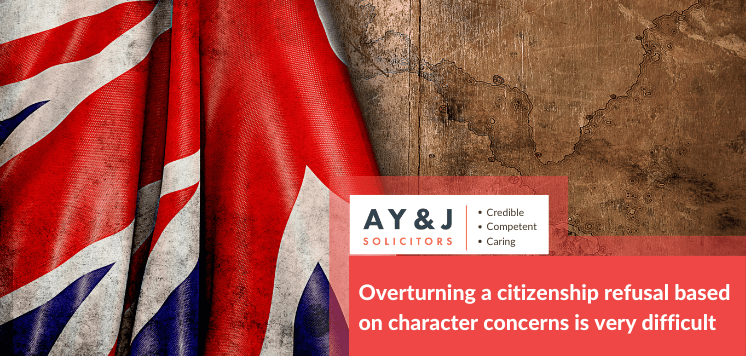Disclaimer: The information in this blog is accurate as of its publication date. Any updates after that date are not reflected here.
When hiring highly qualified foreign workers, a UK-based firm must fully comprehend the ramifications of holding a sponsor licence from the Home Office. Many firms fail to factor in the whole cost of placing the people, systems, and procedures necessary to fulfil the obligations of a licence holder, as well as the fees that must be paid for each person sponsored and Certificate of Sponsorship (CoS) granted.
As an employer, you may be required to pay the Immigration Skills Charge when you issue a certificate of sponsorship to someone whom you wish to sponsor as a Skilled Worker, or Senior or Specialist Worker.
The number of companies paying the Immigration Skills Charge has increased drastically ever since it became compulsory for all UK employers to acquire a sponsoring licence in order to employ foreign employees. However, the ISC is hardly understood by employers, and considering the size of the fee, it can come as an unpleasant surprise to those who are sponsoring for the first time.
Table of Contents
What is the UK immigration skills charge?
When a skilled foreign worker is sponsored in the UK, the Home Office charges a fee called the Immigration Skills Charge. Subject to certain limitations, companies are required to pay the Immigration Skills Charge (ISC) each time they grant a Certificate of Sponsorship to either a Skilled Worker or Senior or Specialist Worker.
Under the following circumstances, you must pay the immigration skills charge:
- If the worker is requesting a visa from outside the UK to work in the UK for a period of six months or more
- If the worker wants to seek a visa from inside the UK for any length of time
To close the domestic skills gap, the Immigration Skills Charge (ISC) was established on April 6, 2017, under the Immigration Skills Charge Regulations. In order to encourage firms to spend on educating and developing UK-based staff instead of employing foreign workers, the fee is a calculated strategic move. The Department of Education receives the revenues collected from the ISC in order to support investments in skill development and training programmes and to close the skills gap in the domestic UK labour market.
The Immigration Skills Charge (Amendment) Regulations 2020 revised the Immigration Skills Charge after it was first implemented by the Immigration Skills Charge Regulations 2017 in 2017. Prior to January 1, 2021, UK companies hiring EU and EEA citizens were exempt from the Immigration Skills Charge (due to free movement). Due to the end of UK/EU free movement after Brexit, more and more companies who rely on skilled foreign workers have filed for sponsor licences since the beginning of 2021 and are thus now subject to the Immigration Skills Charge.
Who Is Required to Pay the Immigration Skills Charge?
The Immigration Skills Charge must be paid by the sponsor and cannot be passed to the worker through any means. The consequence of passing on the Immigration Skills Charge to the worker include the revocation of your sponsor licence.
The amount an employer needs to pay as their Immigration Skills Charge is broadly based on two factors:
- The size and type of the organisation
- How long the employee will work for you, based on the beginning and end dates on their Certificate of Sponsorship
There are two types of Immigration Skills Charge:
- ‘Large charge’ for Medium or Large sponsors: £1000 per sponsored worker for the first 12 months of sponsorship, plus £500 for each additional 6 months stated on Certificate of Sponsorship
- ‘Small charge’ for Small or charitable sponsors: £364 per sponsored worker for the first 12 months of sponsorship, plus £182 for each additional 6 months stated on Certificate of Sponsorship
Calculate your Immigration Skills Charges based on how long the employee will work for you
You must pay for at least 12 months if the worker will be in the UK for more than six months but less than a year. The entire fee must be paid in one go.
As you can sponsor a migrant worker for a maximum period of 5 years, the maximum amount you must pay for the Immigration Skills Chargeto is therefore:
- £1,820 (5 x £364) if you’re a small or charitable sponsor
- £5,000 (5 x £1,000) if you you’re a medium or large sponsor
You can use the Immigration Skills Charge Calculator (https://isc-fee-calc.visas-immigration.service.gov.uk/start) to assess if you need to pay the Immigration Skills Charge.
How to pay the Immigration Skills Charge
You pay the immigration skills charge when you assign a certificate of sponsorship to the worker you wish to sponsor, unless an exemption applies. Using the dates supplied by the employer as part of the sponsorship procedure, the total fee amount will be computed automatically. The highest fee for medium to large enterprises is £5000, while the maximum fee for smaller firms or charities is £1820.
How to determine whether you are a big or small sponsor or charitable sponsor?
If at least two of the following apply, you are typically a small sponsor:
- Your annual revenue is £10.2 million or less,
- The value of your total assets is £5.1 million or less
- Your workforce includes 50 people or less.
A charitable sponsor is someone who has:
- A registered charity in England or Wales
- A registered charity in Scotland
- A registered charity in Northern Ireland; if not on the list, you must provide documentation of your charitable status for tax reasons from HM Revenue and Customs (HMRC)
- an excepted charity
- an exempt charity
- an ecclesiastical corporation established for charitable purposes
Businesses that do not meet the requirements for a small business or charitable sponsor classify as a medium or large sponsor and must pay the ‘large charge’.
What happens if the wrong Immigration Skills Charge is paid?
The Home Office will contact you if you pay the wrong amount. You’ll have 10 working days to pay the top-up payment to make up the shortfall, otherwise the worker’s visa application will be refused if you do not.
Contact AY & J Solicitors if you’re unsure of which category your business falls under. We will be glad to assist you, to ensure that you pay the correct Immigration Skilled Charge
What happens if the Immigration Skills Charge is not paid?
You must make a single, complete payment to the ISC when you assign a Certificate of Sponsorship to a worker. This is a criterion that must be met.
Failure to comply might cause the Home Office to postpone the applicant’s visa application. The application will be rejected if the ISC is not paid.
If an employer assigns a Certificate of Sponsorship but does not pay the Immigration Skills Charge, the Certificate of Sponsorship shall be deemed invalid whilst the payment is outstanding.
The sponsor should get a payment reminder from the Home Office on the fee. The visa application will be rejected if the whole payment is not paid within 10 working days following the first formal reminder.
Does the Immigration Skills Charge have any exceptions?
- The Immigration Skills charge also does not apply to any other Worker or Temporary Worker route (only applies to Skilled Worker route and Senior or Specialist Worker route.
- A worker who is applying for entry clearance from outside the UK for a period of less than 6 months.
- According to the immigration skills charge advice for sponsors, you might not be required to pay the fee if you’re sponsoring a worker who was assigned a certificate before 6 April 2017. This includes where:
a worker who was assigned a CoS under Tier 2 (General) or Tier 2 (ICT) Long-term Staff before 6 April 2017 and:
- that CoS resulted in a grant of entry clearance or permission to stay;
- the worker undertook the role for which that CoS was assigned; and
- the worker has not since ceased to have permission under Skilled Worker (or its predecessor route, Tier 2 (General)) or Senior or Specialist Worker (or its predecessor routes, Intra-Company Transfer, or the Long-term Staff sub-category of Tier 2 (Intra-Company Transfer)).
Only a few occupations fall under the exemption from the Immigration Skills Charge. If you’re sponsoring someone with one of the following occupation codes, you won’t be required to pay the charge:
- Physical scientists (2113)
- Social and humanities scientists (2114)
- Chemical scientists (2111)
- Biological scientists and biochemists (2112)
- Professionals in the natural and social sciences who are not otherwise categorised (2119)
- Managers of research and development (2150)
- Professionals in teaching in higher education (2311)
- Clergy (2444)
- Sports players (3441)
- Sports teachers, Coaches, or Officials (3442)
- Any of the employee’s dependents, such as their partner or child, are exempt from the fee.
- A worker who has valid permission for the purpose of study and is applying to ‘switch’ to the Skilled Worker or Senior or Specialist Worker route..
- If they switch to a Skilled Worker or Senior or Specialist worker visa and then extend their stay on the new visa, you won’t have to pay the charge.
Am I entitled to a refund for the Immigration Skills Charge?
The employer may be eligible to request a full or partial reimbursement of the immigration skills charge under certain conditions.
You’ll get a full refund of your ISC if the worker’s visa application is:
- Refused or withdrawn
- Successful, but they do not end up working for you
You’ll receive a partial reimbursement if the employee:
- Obtains a shorter visa than the one you sponsored them for.
- Starts working for you but soon switches to a different sponsor.
- Quits their position before the job end date mentioned on their sponsorship certificate.
If you paid the medium or large sponsor charge when assigning the certificate but previously informed UKVI that you are now a small or charitable sponsor, you will also get partial reimbursement.
Refund processing time
Normally, refunds are given within 90 days of the following:
- Notifying the Home Office that the employee did not arrive to work for you
- The worker’s certificate of sponsorship’s expiration date, if they didn’t utilise it to submit a visa application
- The date on which the worker’s visa application’s refused or withdrawn
- If you had already informed UKVI that you had become a small or charity sponsor, the date you assigned the certificate of sponsorship.
In the event that the worker’s visa application is refused, he or she may request an administrative review. However, if they do not request an administrative review within 90 days of the deadline for applying for one, you will get a refund.
If the employee applied for an administrative review and was unsuccessful, you will get a reimbursement within 90 days of the administrative review being dismissed.
Contact A Y & J Solicitors for assistance
All of the expenses associated with sponsoring a migrant worker can add up to be rather high, which increases the time, money, and effort needed to fulfil your continuous compliance obligations as a sponsor. Failure to comply with these obligations might result in the suspension or cancellation of your sponsorship licence, which would restrict the visas of sponsored employees and limit your company’s capacity to sponsor migrant workers.
To avoid such circumstances, it is advisable to contact immigration experts for assistance. Our highly skilled lawyers at A Y & J Solicitors specialise in UK immigration. We can provide you with advice on whether you must pay the Immigration Skills Charge, how much to pay, and how to settle your due. If you have a query regarding the Immigration Skills Charge, get in touch with us.









